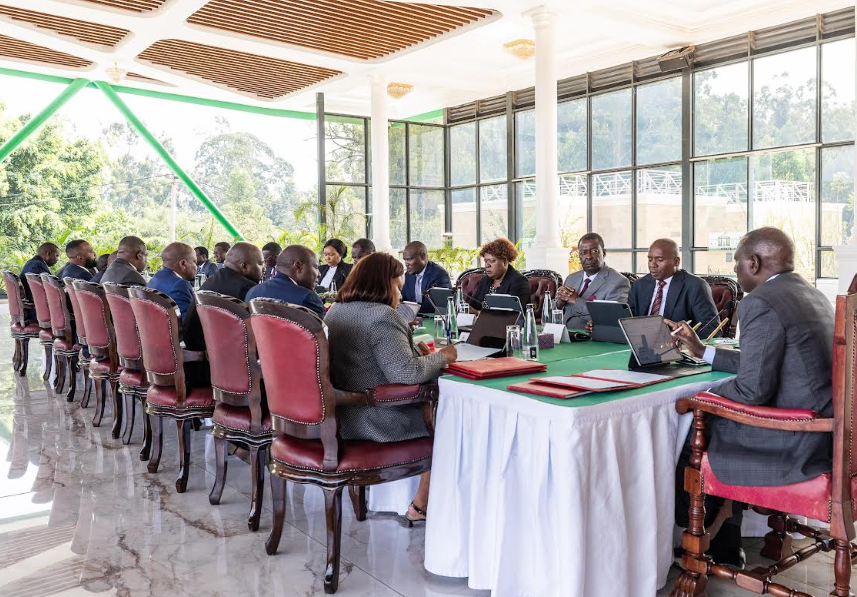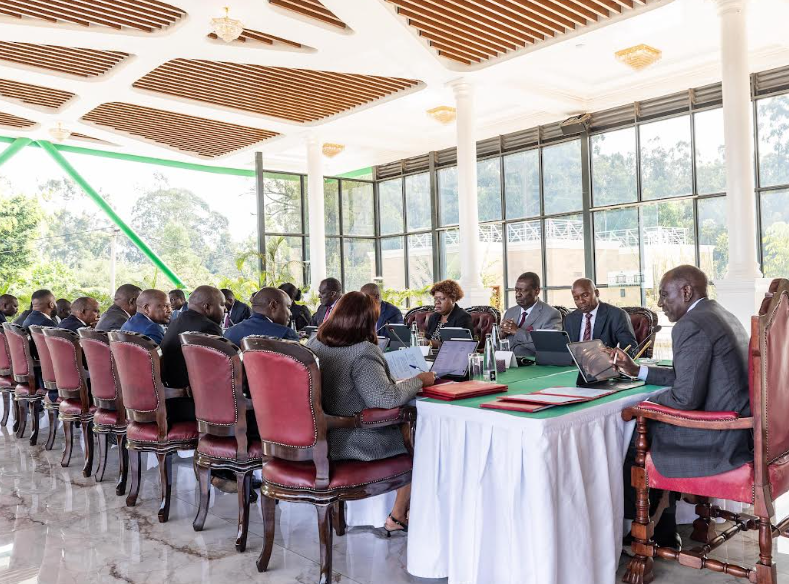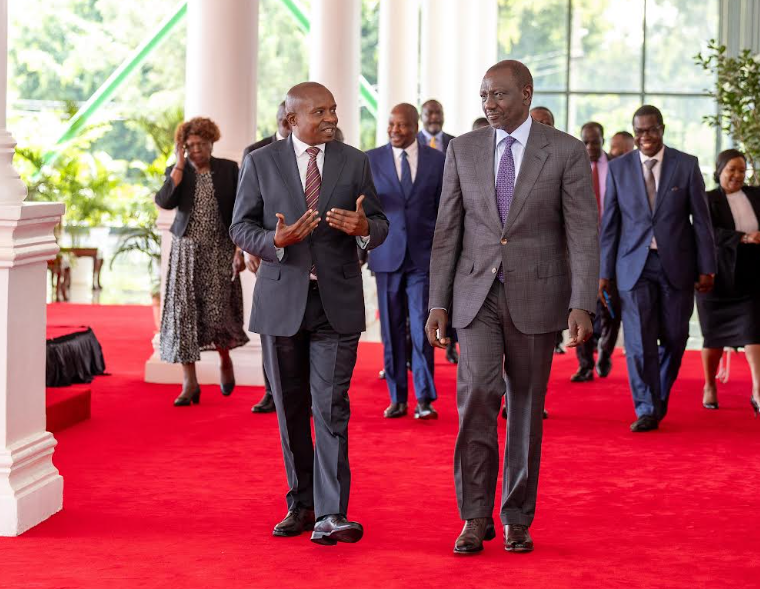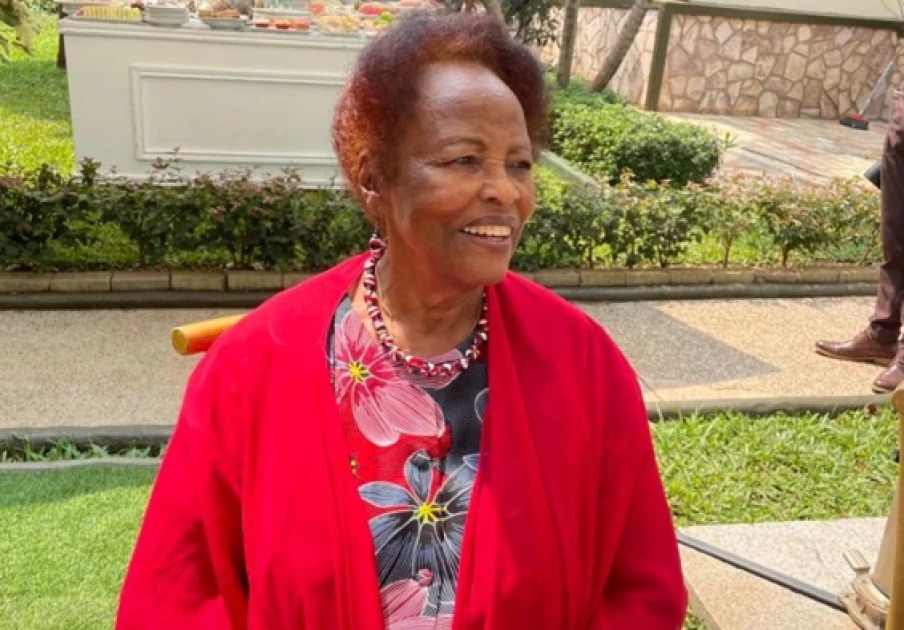
On Tuesday, June 24, 2025, the Cabinet, chaired by President William Ruto at State House, made a decisive move by approving the Government-Owned Enterprises Bill, 2025 (GOE Bill, 2025).
This marks a major policy shift in how commercial State corporations are governed and operated.
According to a Cabinet dispatch released after the meeting, the approval of the Bill is a significant milestone in the effort to reform the governance and performance of commercial State corporations.
The Bill establishes a new category of commercial entities—Government-Owned Enterprises, which, once passed by the National Assembly and assented to by the President, will fundamentally alter the management of these institutions.
“The Bill aims to, among others, address longstanding inefficiencies such as the appointment of unqualified individuals to leadership roles by introducing a structured, merit-based selection process overseen by an independent panel,” the dispatch read in part.
This independent panel will function as a board, periodically electing its chairperson from among its independent members.
The Bill explicitly prohibits conflicts of interest for both the chairperson and independent directors, in a bid to promote professionalism, transparency, and commercial viability.
“These reforms are part of a broader national effort to modernise and professionalise State-owned enterprises, improve economic efficiency and restore public trust in public asset management,” the dispatch added.
The government’s firm stance is informed by its commitment to streamlining operations, reducing wastage, and curbing excesses.
This direction follows an earlier Cabinet meeting held in Kakamega on January 21, 2025, where a series of reform recommendations were approved.

These reforms target operational and financial inefficiencies, seek to enhance service delivery, and aim to reduce dependence on the Exchequer.
The National Treasury had assessed 271 State corporations, excluding those earmarked for privatisation, leading to the proposed restructuring.
The reforms include: 42 corporations with overlapping or related mandates will be merged into 20 entities to improve operational efficiency and eliminate redundancy, Nine State corporations, including the President's Award, Kenya, Nuclear Power and Energy Agency, Kenya National Commission for UNESCO, National Council for Nomadic Education, LAPSSET Corridor Development Authority, and the Kenya Film Classification Board, will be dissolved.
Their functions will be transferred to relevant ministries or other State entities
Sixteen corporations with outdated functions that can be offered by the private sector will be either divested or dissolved, six corporations—including Kenya Utalii College, Postal Corporation of Kenya, Bomas of Kenya, National Syndemic Diseases Control Council, Kenya Roads Board, and the National Housing Corporation will undergo restructuring to better align with their mandates and four public funds, Water Sector Trust Fund, National Environment Trust Fund, Fish Levy Trust Fund, and the Sports, Arts and Social Development Fund—currently classified as State corporations, will be declassified and returned to their respective ministries under a strengthened governance framework.
Kenya has a total of 248 State corporations, comprising 46 commercial enterprises and 201 non-commercial entities.
A World Bank report titled Kenya State Corporations Review: Corporate Governance and Fiscal Risks of State Corporations (August 2021) supports the need for reform. The review aimed to identify policy changes to help the government improve governance and reduce fiscal risks associated with State corporations.
The report noted that Kenya’s commercial State corporations sector, when measured by revenue as a share of GDP, stood at 3.5 per cent in FY2019/2020, significantly lower than the Sub-Saharan Africa average of 14 per cent.
Despite this, State corporations remain central to the country’s socio-economic development and serve as the primary drivers of large-scale project implementation.
However, the report also highlighted a high concentration in Kenya’s commercial State corporations, with 83.5 per cent of FY2019/2020 revenues generated by the energy (61 per cent) and transport (22.5 per cent) sectors.
Kenya Power and Lighting Company, Kenya Ports Authority, Kenya Electricity Generating Company, and Kenya Pipeline Company accounted for more than two-thirds of the total revenue generated by commercial State corporations in that period.
Additionally, the government plans to declassify all professional organisations currently categorised as State corporations and end their eligibility for government budgetary allocations.
These far-reaching reforms are being driven by mounting fiscal pressures, growing public debt, and an urgent need to deliver quality public services amid constrained government resources.
The Cabinet noted that many State corporations have been struggling to meet their contractual and statutory obligations, resulting in pending bills that had reached KSh94.4 billion as of March 31, 2024.




















